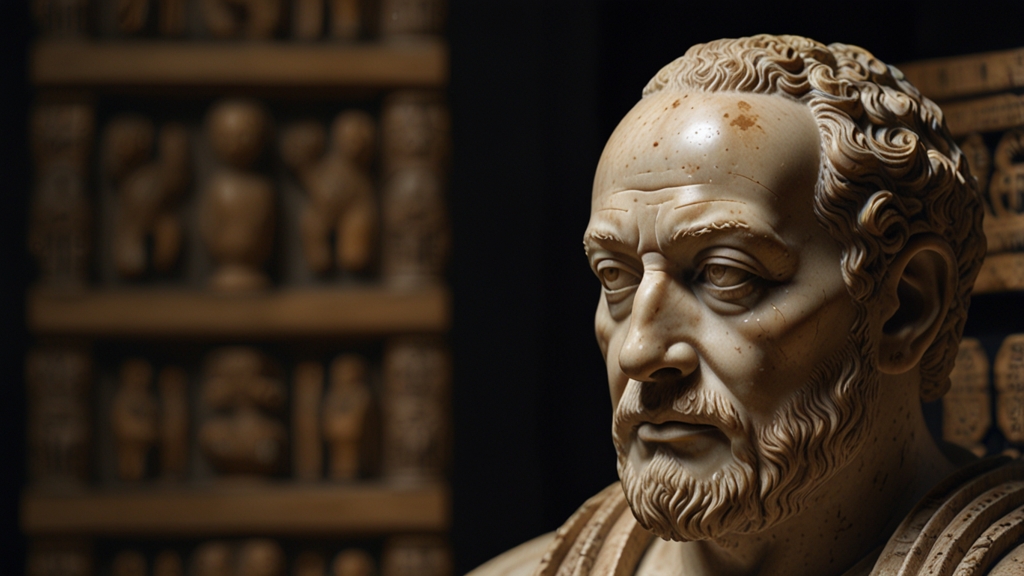Unlocking Your Mind: Ancient Philosophies for Modern Problems
In today’s fast-paced, ever-changing world, modern problems often seem insurmountable. Stress, anxiety, and a sense of disconnection have become nearly ubiquitous. However, the solutions to these issues may not lie in the latest technological advancements or contemporary self-help books, but rather in ancient philosophies that have stood the test of time. By exploring and applying these time-honored teachings, we can unlock new perspectives and find practical solutions for our current challenges.
Stoicism: Embracing Resilience and Control
Stoicism, a philosophy founded in Ancient Greece by Zeno of Citium, emphasizes the importance of rationality, self-control, and resilience. At its core, Stoicism teaches that while we cannot control the external events around us, we can control our reactions to them. This distinction between what is within our control and what is not is crucial for maintaining inner peace and emotional stability.
"We suffer more often in imagination than in reality." - Seneca
Stoicism encourages us to focus on our own actions and attitudes, rather than getting caught up in external circumstances. By practicing gratitude for what we have, accepting what we cannot change, and cultivating inner virtues, we can navigate life's challenges with greater ease and resilience.
Buddhism: Finding Mindfulness and Compassion
Buddhism, founded in the 6th century BCE by Siddhartha Gautama, is not just a religion but also a practical philosophy that offers profound insights into the nature of human suffering and the path to enlightenment. Central to Buddhism is the practice of mindfulness, which involves being fully present in the moment and observing our thoughts and feelings without judgment.
"Peace comes from within. Do not seek it without." - Buddha
By cultivating mindfulness, we can reduce stress, enhance emotional regulation, and improve our overall well-being. Additionally, Buddhism emphasizes the importance of compassion not just towards others but also towards ourselves. By embracing a compassionate outlook, we can foster deeper connections and alleviate suffering both within ourselves and in the world around us.
Taoism: Embracing the Flow of Life
Taoism, an ancient Chinese philosophy attributed to Laozi, teaches the importance of living in harmony with the Tao, or the fundamental nature of the universe. A key principle of Taoism is wu wei, which translates to "non-action" or "effortless action." This does not imply passivity but rather aligning oneself with the natural flow of life and responding to situations in a spontaneous and unforced manner.
In a world that often glorifies constant hustle and striving, Taoism offers a refreshing perspective. By learning to go with the flow and recognizing the interconnectedness of all things, we can find balance and serenity. Taoism encourages us to let go of excessive control and trust in the natural unfolding of life.
Applying Ancient Wisdom to Modern Life
The teachings of Stoicism, Buddhism, and Taoism provide valuable tools for addressing contemporary challenges. By embracing these ancient philosophies, we can cultivate resilience, mindfulness, compassion, and a sense of harmony. Here are some practical steps to integrate these philosophies into your daily life:
- Practice daily reflection and gratitude to foster a Stoic mindset.
- Dedicate time each day to mindfulness meditation and self-compassion exercises inspired by Buddhism.
- Embrace a more flexible and adaptive approach to life's challenges, in line with Taoist principles.
While modern problems may seem daunting, the timeless wisdom of ancient philosophies offers us a wellspring of insight and guidance. By unlocking our minds and applying these teachings, we can navigate the complexities of modern life with greater clarity, peace, and purpose.











